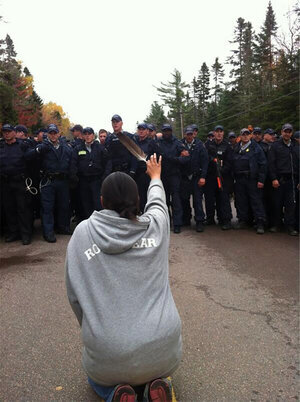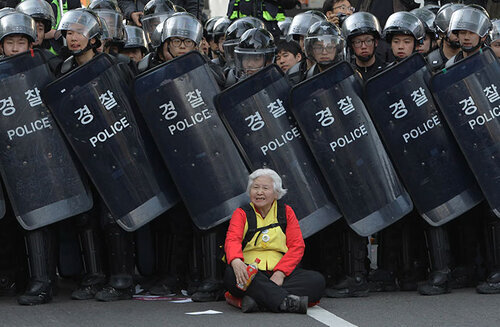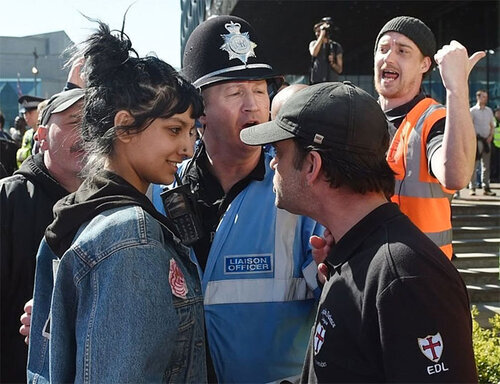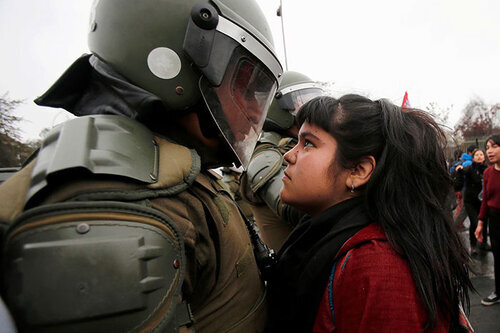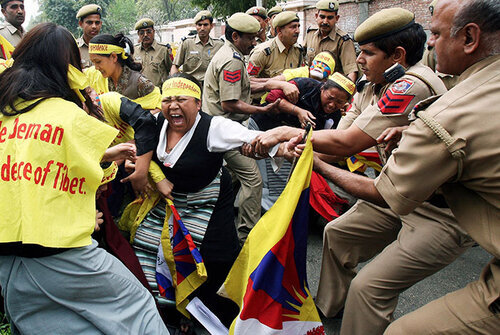Thoughts for WOC On Our Rage and Anger
Let me begin my saying, I believe that our rage, the anger of women of color, will change the world. I believe our grief, our vision, our commitment to our communities, our RAGE for ourselves and the next generation is one the most powerful catalysts for justice in the world.
This post is not about that. But it is important for me to name it, because our anger is constantly being patrolled and silenced, while white male anger is sanctioned, centered, and elected.
Below are just a few images of us doing our thing globally.
This post is about how we hold our anger as WOC navigating Christian spaces and justice work. I did an Instagram post on self care the other day, and was asked a really important question about the place of anger and rage by Jaci Anderson ( @racijene). As an enneagram 8, I am easily in touch with my anger, but I realize that as WOC in Christian spaces, we are often not allowed to express anger. We are silenced or deeply penalized when we express anger. And so I wanted to take share reflections that honor and validate our anger.
Two caveats before diving into this discussion.
I want to to name that patrolling and silencing anger has been uniquely weaponized against Black women.
When sitting at their desk thinking, Black women are told they look angry.
When presenting an opinion, Black women are told they are being argumentative.
When disagreeing, Black women are told they are intimidating.
And then in Christian contexts this is compounded by the expectation that they will offer an endless supply of patient racial education to white people. Not only are Black women not allowed to express anger, anything other than total grateful emotional labor in the service of whiteness is labelled as anger.
A second thing to name before proceeding is that our communities have different levels of privilege when it comes to expressing rage. Our undocumented sisters, our trans family must navigate a complex web of dynamics when speaking up. I want to validate our anger, and acknowledge there are a web of circumstances that shape our freedom to express it.
So with those caveats being made, here are some thoughts on anger and rage. It is not exhaustive, and of course it is informed by the limits of my own experience. I welcome your thoughts and experience to the conversation.
1. Our rage and anger are valid
The violence we see happening to us and our community are real.
The injustice. The inequality. The disgusting disregard for Black Lives, Indigenous Rights, Asian humanity, Latinx dignity.
The police violence.
The terror of ICE.
The unapologetic misogyny. It goes on and on.
Anti-Black violence is constant, overwhelming, and embedded into every system of this country. Indigenous erasure and settler colonial violence are HOW this country exists. If everyday of your life, for multiple generations, this country has enacted violence onto you and your people’s humanity, there is no way not to be filled with rage. The intersection of white supremacy and patriarchy from white folks and from our own communities enact dehumanizing violence on us everyday.
You are right to feel anger, rage, frustration, horror, grief, numbness.
And there are a variety of reasons why you may not feel those things. But this is a post about permissions to feel rage and anger.
2. Rage does not mean that you don’t love Jesus
It takes faith to trust that Jesus will meet you in your rage. It takes faith to know that Creator is not asking you to make your anger small. It takes trust to believe that Creator is not trying to colonize your emotional world. There is no fire that can burn too hot for Creator to hold. I get as angry as I do about injustice BECAUSE of who Creator made me to be, not in spite of it.
3. Don’t let anyone gaslight you and say that your rage is not Christian
Controlling, silencing, and disempowering women is foundational to white supremacy. Our rage is a gateway to our liberation. Telling us that God does not condone our anger is a way to control us, and this narrative overlaps with “acceptable expressions of femininity” in Christian spaces, which is why these dynamics are also intertwined with patriarchy and heteronormativity. Additionally, our rage is threatening to the male pastors that want our service, but not our voices. Churches would not survive if women really got in touch with their rage towards patriarchy.
Brown Jesus, Jewish Jesus under Roman empire, Black Jesus can handle your rage. The white framing of Jesus’ work on the cross is, “He is good news to the sinner.” But a WOC centered framing would say, “Jesus is good news to the sinned against.”
4. The process of deconstructing stirs its own unique rage
There is a certain kind of anger and rage when you wake up to white supremacy in Christian spaces, in your theology, and all the ways it has made you small in the name of Jesus. It is deeply intertwined with grief, confusion, and a sense of powerlessness. Having walked with many folks through this journey, the anger needs permission to run its course,(but also see point 9).
5. We must have places to rage and vent without being edited
We know that not all spaces are safe. Sometimes we let our rage flow into the public space- whether that be in protest, to hold people accountable, to claim our dignity and humanity. But we know that is not always a safe choice- which is why I don’t tell off white guys saying racist stuff at that gas station in the middle of nowhere, cause I don’t want to die.
But we all need a place where we can show up without explanation or filter- and go off. For me, that has been closed WOC circles- over texts, messenger, WhatsApp groups, and when it was possible, in person. It does not necessarily have to be your best friends, but just a group where there is shared understanding and agreement that you believe each other and know that white nonsense knows no bounds.
6. You have to help the rage and anger move through your body
Your rage is righteous, but it will harm you to hold onto it in your body. Walking outside is critical to my self-care, but also to let my rage move through me. In my work, I’m often sitting with WOC who are experiencing deep violence and dehumanization in their workplaces and churches. In order to hold space for them, I need to hold and then release the anger I feel about the injustice they are experiencing. And the truth is, that our anger is often deeply connected to grief. And so we need to find ways to let our grief move through us as well.
I believe in practices of hitting pillows with a bat, screaming in your car, kicking and hitting a punching bag, and purposely watching movies that I know will make me cry. We have to send the rage somewhere or it begins to pour out in the wrong places, like onto our kids, our partners, our close friends.
7. Rage and mental health are connected
Part of why I work hard to regulate my rage is because I realized it was harming me more than anyone else. I wasn’t hurting those problematic white people with my rage, but I was hurting myself, exhausting myself, and triggering deeper mental health struggles.
And for those who tend to repress their anger and rage, that has its own long-term consequences. It needs to be acknowledged and allowed to move through you. I know that at times it can feel like it will overwhelm. But those who have gone before can hold space and reassure you that it will move through you if given permission to be felt.
8. Rage burns bright and it burns hot
When I was first going through a process of liberating my faith from white evangelicalism I raged a lot. ( To me rage is a little more intense than anger, and very visceral.) My rage fueled a lot of action, it fueled the majority of my writing from 2014 to 2017, as well as much of my organizing and activism. But it was an exhausting way to live all the time, and frankly exhausting for the people around me. I don’t feel bad about that, but I don’t think it was sustainable. Yes I’m still angry at the injustice I see, but I don’t rage in the same way for as much of the time.
People I see, who have done this work for decades, feel anger, but they don’t let it consume them. They don’t let it steal the joy out of every other part of their lives. Honestly, it is sometimes the most privileged that I see acting like anger is the only emotion people are allowed to have if they care about justice.
9. Even if you are angry, you don’t get to be an ass
When folks are deconstructing they have a very deep, profound, and often very self-righteous rage. (And no lie, I say this as an Asian American woman, Asian American women are some of the ragiest in their deconstruction. That’s an entire post of its own.) But our rage is not an excuse for not being responsible for our actions, accountable to our community, or excused from love – giving and receiving it.
We have to be aware of who is at the center.
For example, I find the anti-Black bias of the criminal justice system angering as hell. But when I am with my friends who have been directly impacted by this, friends who have been to jail, friends whose children are doing life in prison, friends who have experienced violent harassment by the police, my anger does not get centered. My rage doesn’t get to suck the air out of the room. It doesn’t get to decenter the people directly impacted.
There can be empathetic anger and solidarity. But my self righteousness does not get to take over when their lived experience is in the room. I process my rage elsewhere.
This is part of why it was so helpful for me to deconstruct in Indigenous spaces. I was angry, but I could not dismiss the wisdom of my teachers and community by saying, “ You don’t know what you’re talking about when it comes to injustice and white supremacy.” It put a boundary and a humility around my anger, and that was important. We have to ask, who is at the center, who is directly impacted? And then handle ourselves accordingly. Deconstructing isn’t an excuse to act like an ass or be perpetually self centered.
We need places of accountability in community.
Sometimes the ways we are managing, expressing, or leading out of our anger is not on point and we need to let other WOC speak into our lives and leadership. No, white folks don’t get to tell us when our anger is and isn’t appropriate. Also, colonized POC don’t get to police us either.
But even in our rage, we need to be in community. We have to let people we trust tell us, ”Sis, reign it in. You’re harming others, you’re harming yourself, or you’re harming the work.” Your rage is righteous, but you need to manage it differently. And sometimes our rage overlaps with our unaddressed brokenness and wounding, and we need community to help us navigate that and move towards healing. Justice is about wholeness, it is about right relationships. Anger is a part of that journey, but always in community and with room for the humanity of others.
2020 and 2021 have been ongoing and non-stop trauma. There has been a constant stream of violence, dehumanizing rhetoric, all while watching our communities ravaged by the pandemic. Seeing all of this fueled by a Nationalist White Supremacist sect of Christianity has been terrible to witness. The rage you feel is the only logical response. The anger you have felt makes sense. And part of being liberated is holding space for each other’s rage and anger, grief and pain, trauma and anxiety. As well as holding space for our joy, our healing, our liberation, and truth.

